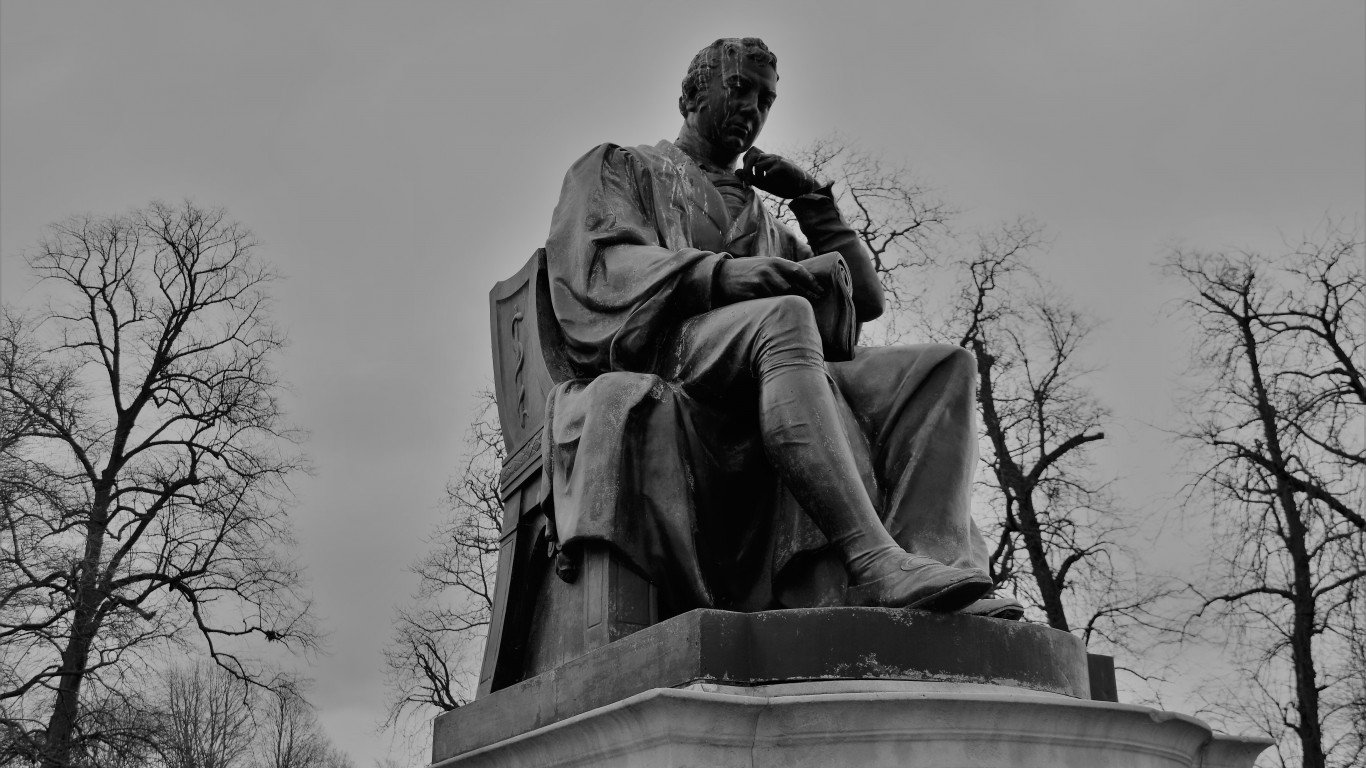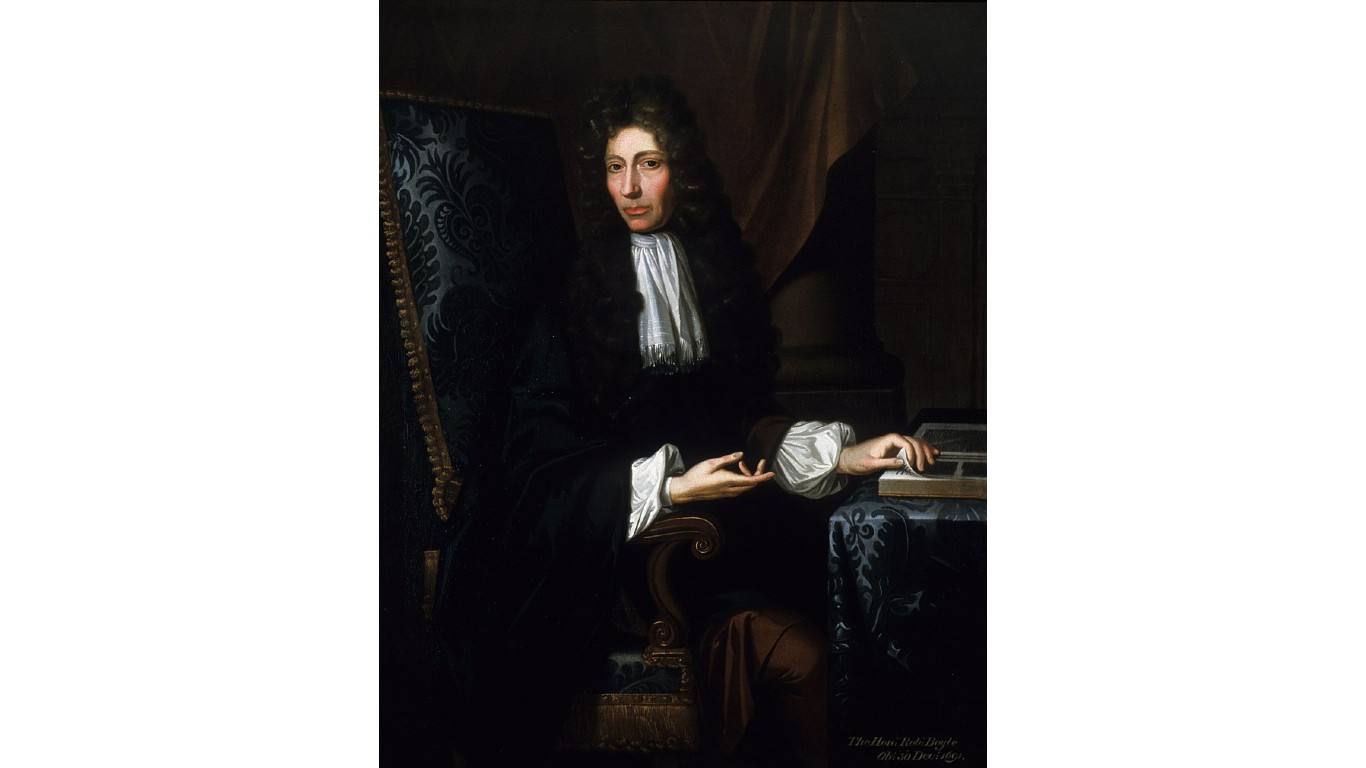
Chemical elements
> Year of discovery: 1661
> Person(s) involved: Robert Boyle
Robert Boyle made many important contributions to the field of chemistry, including Boyle’s Law, which relates gas and pressure; the invention of a lab vacuum chamber; and the use of litmus tests. However, one of Boyle’s biggest contributions lies at the foundation of modern chemistry: his definition of a chemical element. Boyle stated that any element is a substance which cannot be broken down any further.
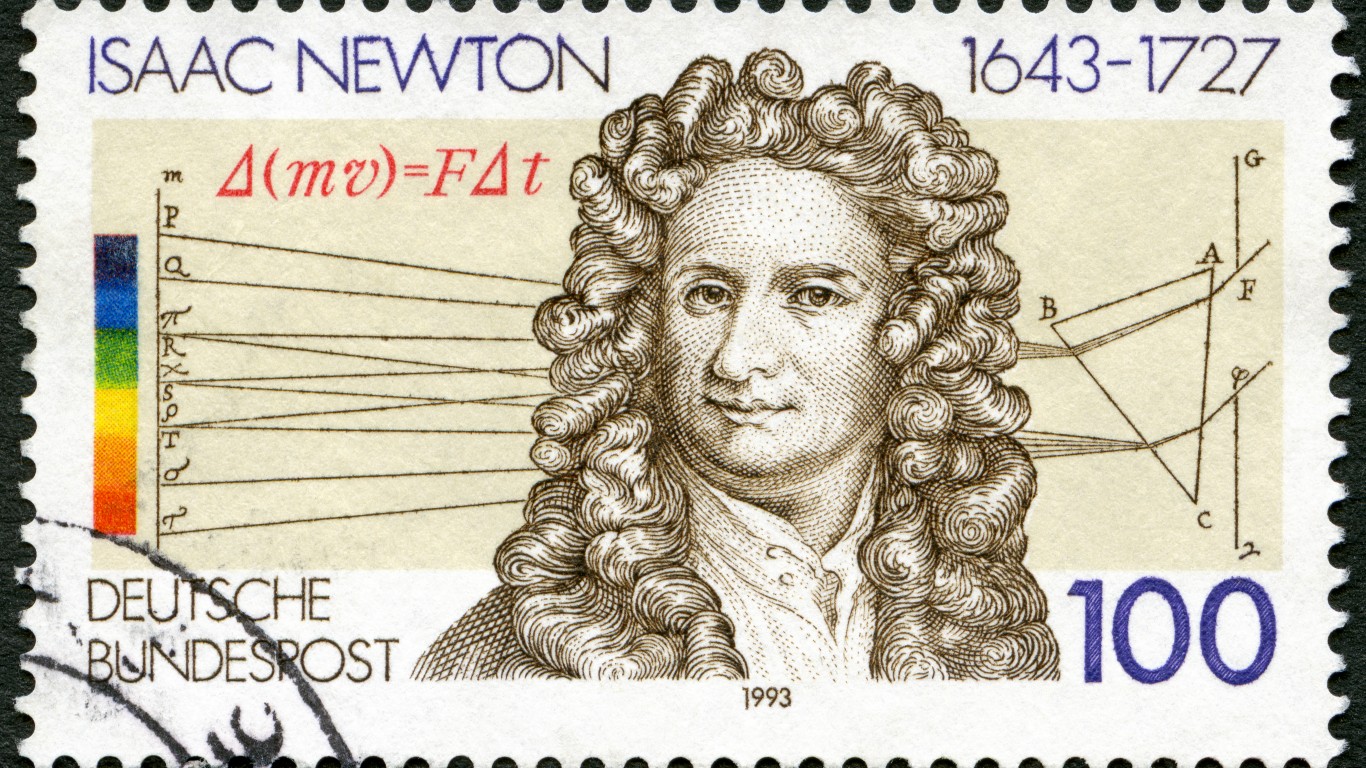
Gravity
> Year of discovery: 1687
> Person(s) involved: Isaac Newton
Many have heard the story of Isaac Newton getting hit in the head with an apple, inspiring his world-altering idea of the influence of the pull of gravity on the movement of objects on earth and in the heavens. Newton, considered one of the most influential scientists of all time, didn’t really get hit on the head, but seeing an apple fall to the ground was a point of inspiration for his big idea.
Vaccine
> Year of discovery: 1798
> Person(s) involved: Edward Jenner
In 1796, British scientist and physician Edward Jenner noticed that milkmaids seemed to be immune to smallpox, a scourge then decimating Europe, and theorized that their exposure to a related but less dangerous disease, cowpox, might be granting them immunity. His experiments proved that having cowpox could indeed stave off the graver illness. Jenner’s discovery opened up a new world of disease prevention, leading to the development of more vaccines for other diseases and extending human life.
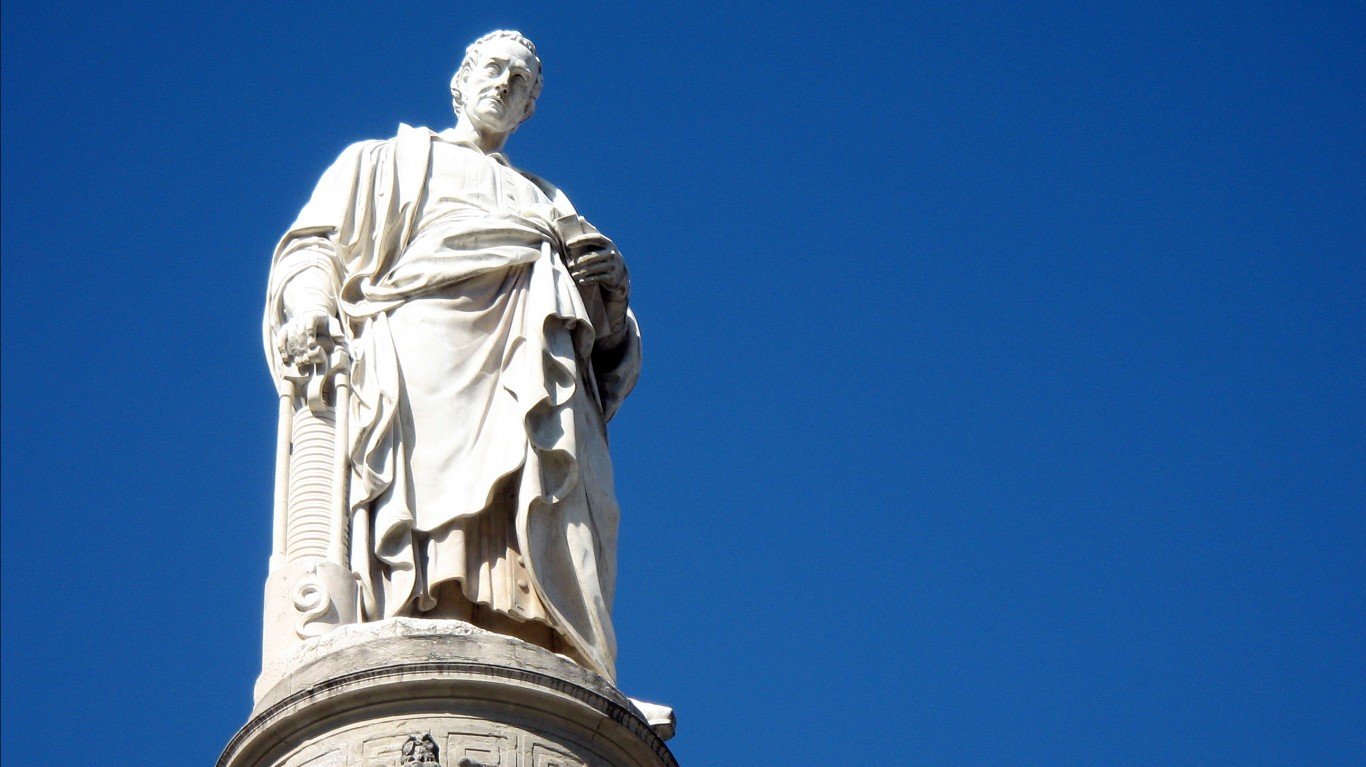
Chemical generation of electricity
> Year of discovery: 1800
> Person(s) involved: Alessandro Volta
Alessandro Volta was an Italian physicist and chemist who determined that electricity – previously thought to be produced only by living beings – could be generated by an object with a zinc pole and a copper pole, which could sustain power through the transfer of electrons. This simple idea led to the development of the battery. (Volta also discovered methane gas.)
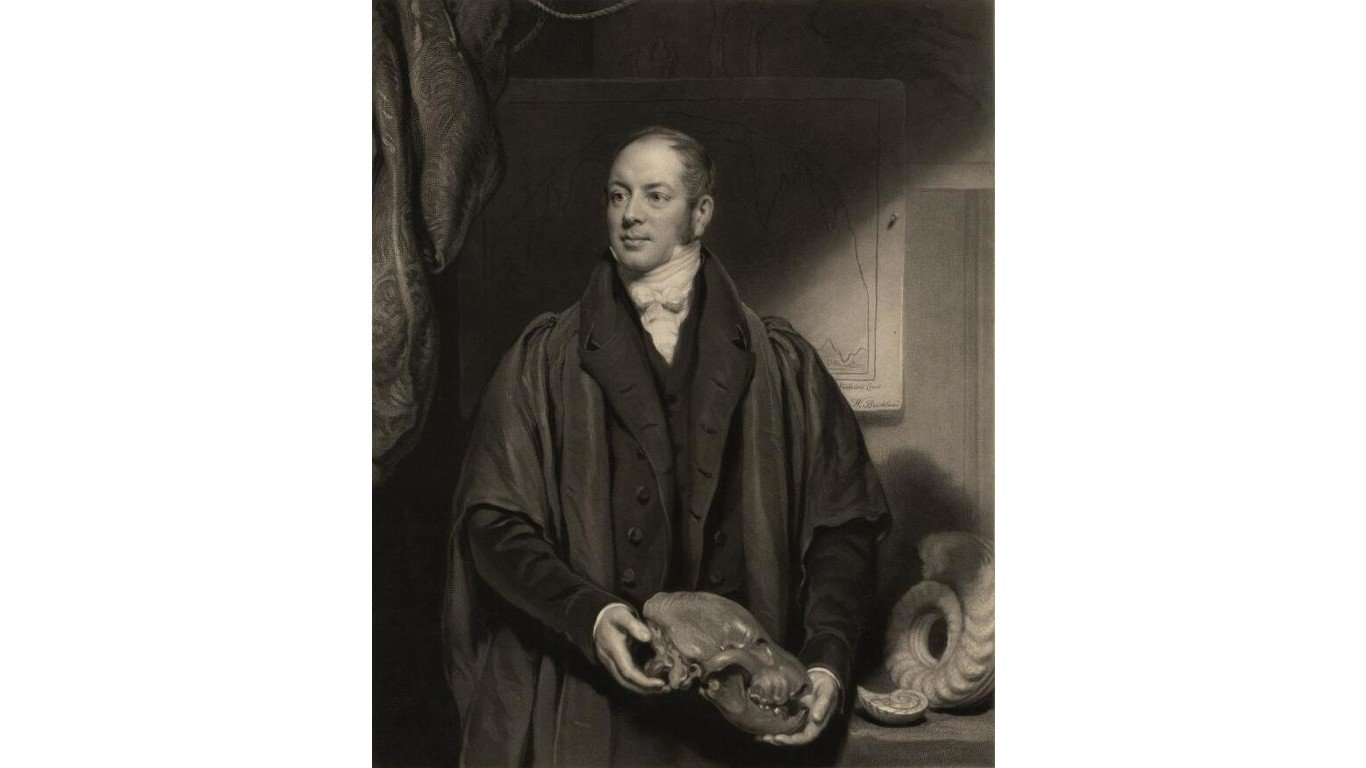
Dinosaurs
> Year of discovery: 1824
> Person(s) involved: William Buckland
In 1811, “fossilist” Mary Anning and her brother unearthed the fossilized bones of what became known as an “Ichthyosaur” on the Dorset coast, and she later found other skeletons of huge, extinct animals. However, the first complete account of a “dinosaur” – the word, meaning “terrible lizard,” had not yet been coined – was written by paleontologist/geologist William Buckland in 1824. He attributed the bones, discovered near Oxford, to a giant reptile he called a Megalosaurus. This and other similar fossils discovered were grouped together by scientist Richard Owen in 1842 under the name “Dinosauria” – giving us the familiar modern term for the beasts.
